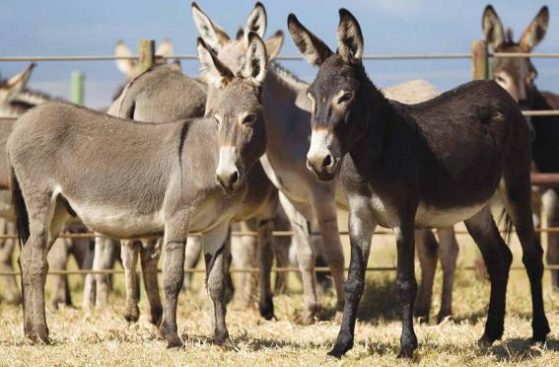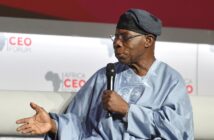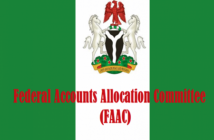Alhaji Mohammed Nanono, Minister of Agriculture and Rural Rural Development, says he is working with the National Assembly on a bill to prohibit the killing and exportation of donkeys or its derivatives.
Nanono said such legislation would prevent donkeys from extinction.
Nanono said this at the Global inauguration of “Under the Skin” the impact of the global trade in donkey skins in West Africa by the Donkey Sanctuary, a UK-based international NGO in collaboration with the Nigeria Now, an NGO, on Thursday in Abuja.
The minister represented by Dr Bello Umar, Permanent Secretary of the Ministry, noted that the bill, when passed, would further complement the import and export of raw animal skins and hides especially donkey currently on the Customs Prohibition List.
He specifically noted that the export of donkey skin had increased in recent years due to increased demand and utilisation of donkey skin in Chinese health products that had been assumed as effective in the management of some health conditions.
Nanono identified the assumed health conditions as preventing ageing and increasing libido.
He, however, noted that “the indiscriminate slaughtering of this species of animals if not controlled will lead to extinction of donkey population in Nigeria.
“In addition, recent research has revealed a worrying trend in the growing trade and demand of donkey skin and its potential effects on global donkey populations and their welfare.
“As part of measures to check these unethical practices, the Federal Government through the Ministry of Agriculture in the 42nd Regular Session of the National Council of Agriculture in 2017 noted the need to preserve donkey and re-classified it as endangered species to prevent its extinction.
“The government at the meeting also encouraged research on the development of donkeys and a sustainable breeding programme for donkey species.”
The minister identified the donkey as playing vital roles in the livelihood support of rural smallholder farmers that could not afford mechanised equipment.
According to him, due to such challenge of mechanisation they use donkeys for heavy lifting needed for cultivating land, transporting hay and silage, hauling water as well as firewood.
Nanono emphasised that the significance of donkeys in the West Africa region especially in Northern Nigeria could not be overlooked describing them as playing important roles in the socio-cultural and economic life of most rural populace.
“They also use their donkeys which have been shown to be more resilient during droughts than other livestock like cattle as an extra source of income, using them to carry goods from one location to another,” Sabo said.
Earlier, Mike Baker, the Chief Executive Officer, the Donkey Sanctuary, frowned at the global crisis affecting donkeys.
Baker emphasised that never before had donkeys faced ”this level of threat, as their local populations in some countries collapse due to relentless demand for their skins.
“It is a crisis that demands immediate action and we are calling for an urgent halt to the global trade in donkey skins,” he said.




